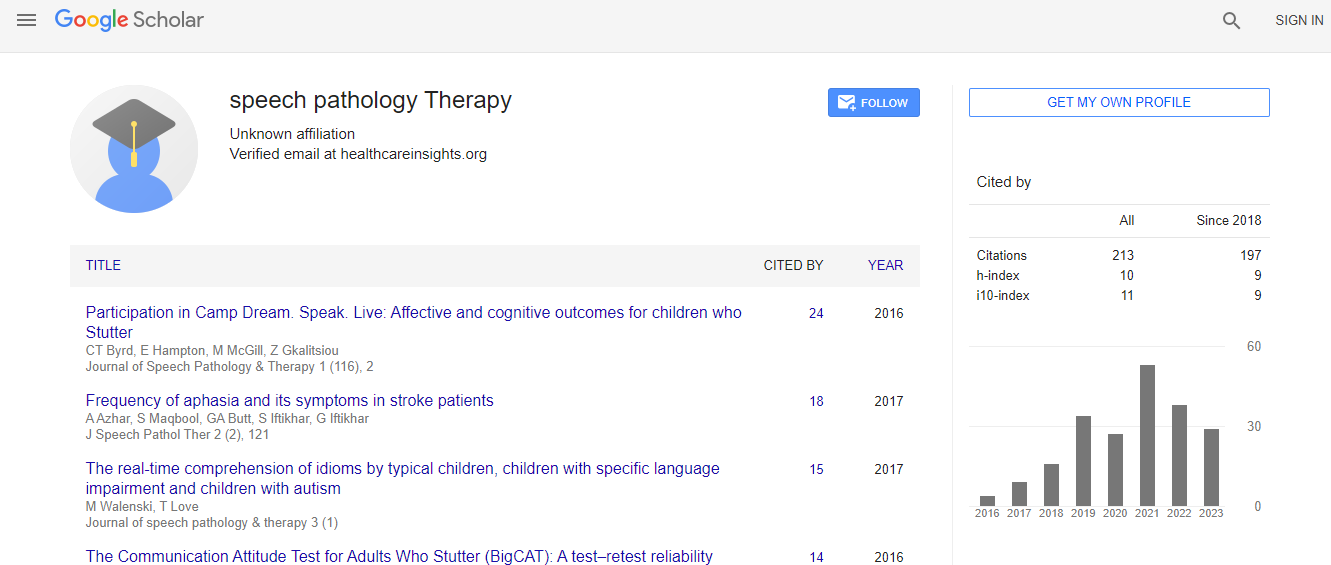Research Article
Innovation of Speech Hand Synchronization as a Treatment in Adults who Stutter
Abdul-Aziz Almudhi*Department of Rehabilitation Sciences, College of Applied Medical Sciences, King Saud University, Riyadh, Saudi Arabia
- *Corresponding Author:
- Abdulaziz Almudhi
Assistant Professor
Department of Rehabilitation Sciences
College of Applied Medical Sciences, King Saud University
Riyadh, Kingdom of Saudi Arabia
Tel: 00966114693558
E-mail: aalmudhi@ksu.edu.sa
Received date: March 04, 2016; Accepted date: May 16, 2016; Published date: May 24, 2016
Citation: Almudhi AA (2016) Innovation of Speech Hand Synchronization as a Treatment in Adults who Stutter. J Speech Pathol Ther 1: 111. doi: 10.4172/2472-5005.1000111
Copyright: © 2016 Almudhi AA, et al. This is an open-access article distributed under the terms of the Creative Commons Attribution License, which permits unrestricted use, distribution, and reproduction in any medium, provided the original author and source are credited.
Abstract
Objective: Stuttering is a complex communication and developmental speech disorder wherein forward flow of speech is interrupted by sound repetitions, words, prolongation of sounds and psychological and social effects. Most of the therapeutic approaches may focus more on cognitive, behavioral or psychological therapy. The aim of this study was to innovate the novel stuttering therapy procedure and to evaluate its efficiency in adults who stutters in accomplishing spontaneous fluent speech.
Methods: The current proposal was designed as the pilot study and the participants were selected based on 3 treatment groups i.e., (i) speech-hand synchronization (SHS) (ii) Camperdown programme (CP) and (iii) control group CG). The equal number (n=10) of participants were selected in all the 3 groups and treatment sessions was carried out for 50 minutes per day for 10 weeks (5 days/week).
Results: The stuttering severity instrument-4 was used to measure the scores of pre and post treatment. The overall, assessment of the speakers’ experience of stuttering, locus of control of behavior and speech satisfaction rating scale.
Conclusion: The results of the current study conclude non-significant alterations and huge similar outcomes within the SHS and CP groups. This could be due to difference in the superior programme between SHS and CP, in terms of fluency, participants quality of life and satisfaction and internal locus of control.
 Spanish
Spanish  Chinese
Chinese  Russian
Russian  German
German  French
French  Japanese
Japanese  Portuguese
Portuguese  Hindi
Hindi 